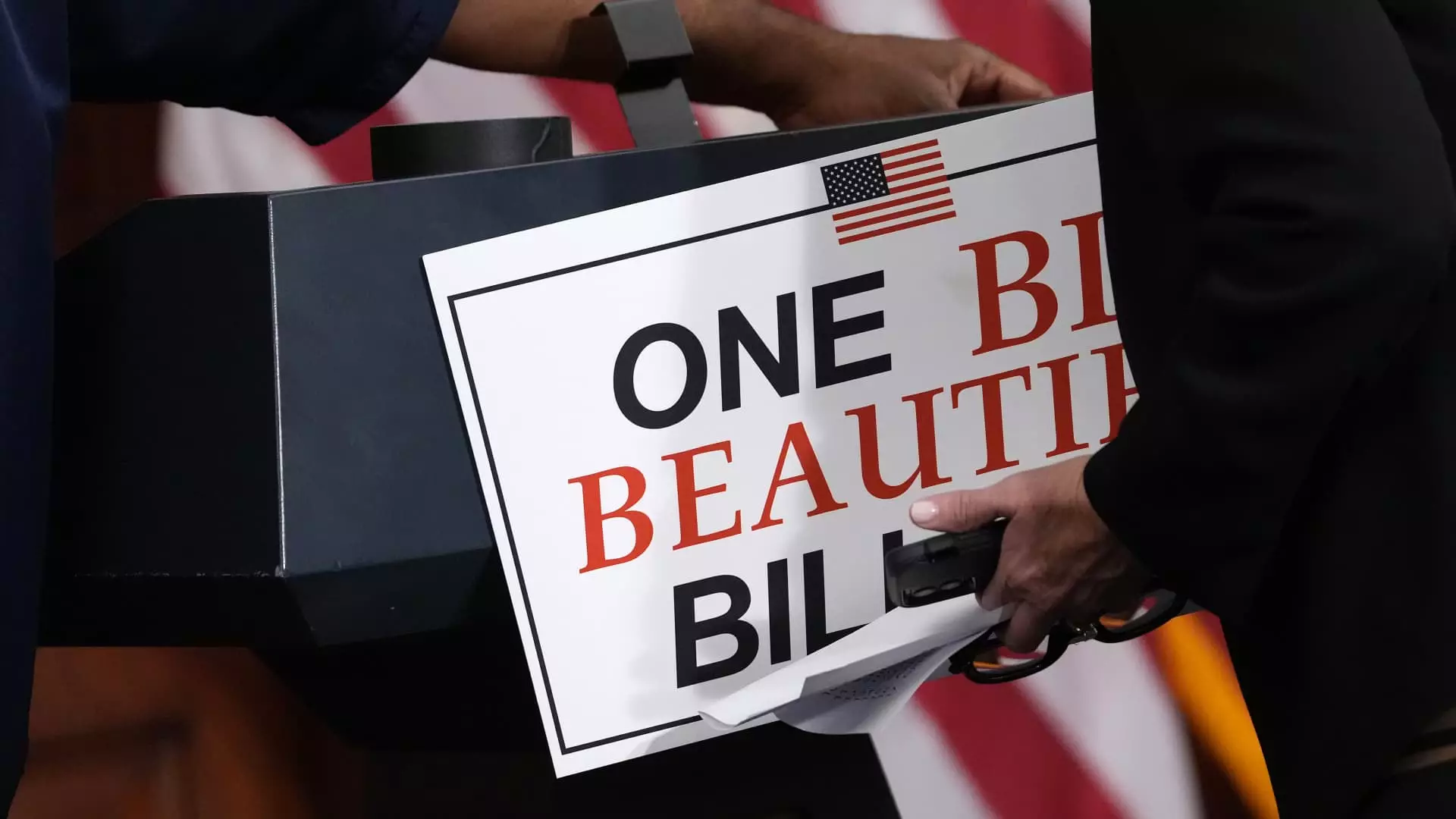The recent passage of the House GOP’s multi-trillion-dollar tax and spending package—dubbed the “One Big Beautiful Bill Act”—has not only showcased the party’s adherence to former President Donald Trump’s economic vision but has also exposed the deep-seated vulnerability of the middle class in America. This sweeping legislation represents a diversion of resources that many struggle to comprehend as a beneficial option for average citizens, instead prioritizing the interests of the wealthy while implementing historic cuts to crucial social safety nets. As we await the Senate’s scrutiny, it is evident that our nation stands at a precipice, with the elite poised to reap further benefits at the expense of the very fabric of society.
The Tax Cuts: A Bone Thrown to the Wealthy
At the heart of the House’s proposal lies the permanence of Trump’s 2017 tax cuts. Ostensibly heralded as a boon to the economy, these cuts have mainly benefited high-income earners and large corporations, while providing a mere crumb to the struggling middle class. Adding new tax breaks for overtime pay and older Americans may sound admirable, but these provisions do little to mask the glaring inequality enshrined within the bill. The wealthy are poised to bask in a fiscal windfall, while those with lower incomes are left to navigate a labyrinth of diminished benefits and increased expenses—a stark reminder that trickle-down economics is a fallacy rather than a feasible framework.
Beneficiary Cuts: A Move Towards Inequity
More alarming are the cuts aimed at crucial programs for low-income families, specifically Medicaid and SNAP. The measures included in the bill are not just technical tweaks; they represent a philosophical shift towards viewing poverty as a personal failing rather than a systemic issue requiring governmental intervention. By slashing funding for essential social programs, House Republicans send a clear message: the welfare of the common citizen is expendable in their quest for fiscal austerity.
In a nation where millions rely on programs like Medicaid for health care and SNAP for nutrition, these cuts equate to a betrayal of the social contract. It is worth pondering who stands to benefit from crippling these foundational pillars, and the answer is undeniably a select few who are too comfortable with their padded bank accounts.
The Senate: A Crucial Filter or a Colluding Entity?
As the Senate prepares to take its turn at the helm, the fear is palpable among advocates for the vulnerable. While some GOP senators, like Ron Johnson, express concern over the bill’s fiscal implications, their intentions often seem rooted in ideological purity rather than genuine concern for the deficit or the needs of their constituents. The opportunity to engage in “budget reconciliation,” allowing them to push through the package with a simple majority, reveals a disconcerting willingness to circumvent deliberative governance in favor of partisan gains.
The mere fact that this legislation can bypass a filibuster highlights a profound disconnect from the principles of democracy, where debate is sidelined in favor of a unilateral push for an agenda that benefits the powerful over the populous.
A Tax System Favoring the Few: The SALT Quandary
The intricacies of the state and local tax (SALT) debate further exemplify the division in priorities. The proposed increase of the salt cap from $10,000 to $40,000 may seem progressive, but this change is primarily beneficial to affluent households in high-tax states. Is it not strikingly ironic that an initiative ostensibly aimed at fairness would predominantly enrich those already basking in affluence?
The phasing out of this cap for incomes over $500,000 amplifies the echo of inequality that reverberates within this legislation. By offering these breaks, lawmakers aren’t merely enhancing tax codes; rather, they are enshrining an economic divide that further marginalizes the everyday American while reinforcing the economic fortress of the wealthy.
Child Tax Credit: A Half-Hearted Attempt
Lastly, the discussion surrounding the enhancement of the child tax credit, set to revert after 2025, conveys a similar sentiment of neglect. While some proposals advocate for an increased credit, the likelihood that these discussions will lead to substantive change remains vague at best. Marginal adjustments, rather than robust reforms, underscore a troubling trend: lawmakers appear to be content with minuscule gestures that ultimately fail to address the underlying issues of economic inequality.
The struggle of families across the nation should not merely be viewed through the lens of tax credits but must be recognized as part of an encompassing narrative of economic injustice that demands significant reforms. The child tax credit needs a fundamental overhaul, not merely a cosmetic update that retains its insufficiency.
In summation, the implications of the House-approved tax and spending bill are alarming, painting a dire portrait of American fiscal policy. As the Senate moves to deliberate, one can only hope that the voices advocating for the middle class generate enough momentum to challenge the status quo and avert the impending crisis born out of self-serving governance.

